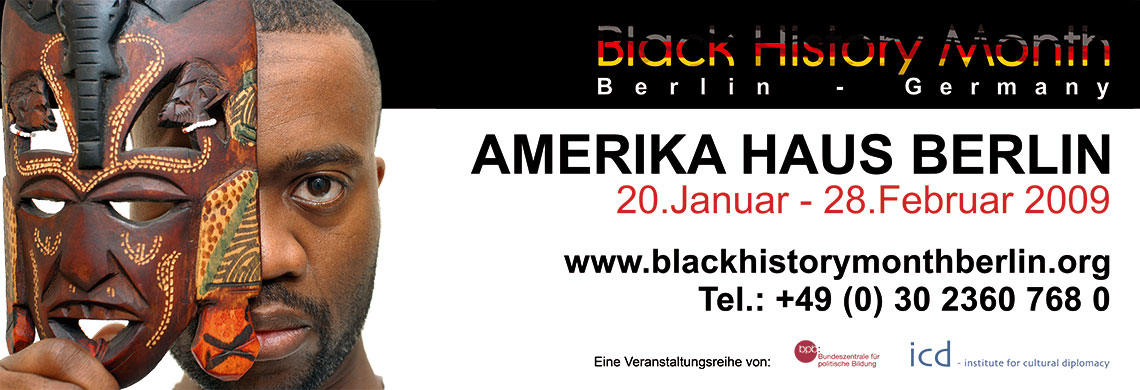Event Review
The first movie shown was “Blues in Schwarz Weiss,” a critically acclaimed documentary about Afro-Germans that was originally aired on 3sat. John Kantara, a co-founder of the Initiative Schwarze Deutsche and a member of Schwarze Filmschaffende in Deutschland, mentioned that the movie was atypical for him, since he normally works on more scientific movies. The movie follows several Afro-German protagonists as they go through their daily lives, deal with their heritage and come to terms with their past. Throughout the movie, John Kantara illuminates how Afro-Germans experienced the different parts of German history, from the colonial past to the Third Reich and finally to unification and the present. The movie manages to mix testimony with historical facts and create a work that manages to be at the same time personal and factual. This is very different from the approach that Otu Tetteh took when creating his documentary “Papa Afrika,” which tells the story of a very personal journey. Otu Tetteh, who financed the project himself, filmed the voyage of his father to go back to Ghana after 29 years in Germany. It's an interesting story to tell, since it mixes returning to roots by both the father and the movie's director, leading to it telling two different stories that through their differences and similarities manage to expose some universal statements about heritage and home. The two movies seem different at first, but worked together perfectly, each filling in parts that the other might have lacked.
After the movies ended, the two directors first had a discussion about their respective movies and then answered questions from an eager audience. It was obvious that the movies resonated with the people crowded into the auditorium and the discussion included such topics as the future of the Afro-German community in Germany and the role of Afro-Germans in the media. Both directors mentioned that Germany has come a long way, but also mentioned that there was still work to be done. Because of the lively discussion only one more movie could be shown in the auditorium and Otu Tetteh's “You are Welcome” was chosen. Otu Tetteh's second movie dealt with African dreams and fantasies of Europe. Although the movie was comedic at times, it still managed to drive home the serious implications this topic has. John Kantara’s last movie was then shown in the media lounge with JK staying to answer questions afterwards. Not surprisingly, the media lounge was also packed and the crowd was treated to “Und Wir Waren Deutsche,” a movie about the friendship between Hans Massaquoi, a Afro-German who survived the Second World war and then move to the states were he was editor of Ebony magazine, and Ralph Giordano, a Jewish holocaust survivor. JK follows the two childhood friends as they return to their childhood homes for the first time and shows both the deep friendship and the individual challenges the two have faced. Because of the great response it got by the viewers in the media lounge and the amount of questions asked after the movie was finished, the movie will also be shown at another Black History Month event later in the month.
While the movie was shown in the media lounge, there was a dance performance by an African dance company, which filled the lobby with the rhythmic sounds of African roots music. The group used traditional instruments and even incorporated masks into the performance, taking the audience on a mesmerizing journey into African music and culture. Finally, the night was ended by the Buba Jameeh Quintett, and the band's unique style and amazing energy managed to get the audience dancing in the aisles. The band stayed on for an encore and provided a fitting conclusion to an evening filled with energy and that left everybody excited for the next events.










